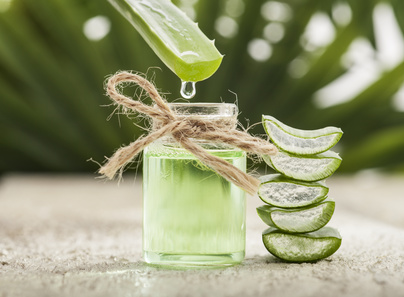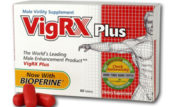 Pick up a bodybuilding magazine and you’ll no doubt hear of creatine. The popular muscle-building supplement helps the body turn creatine to creatine phospate. Your body then turns that substance into adenosine triphosphate (ATP), which gives energy for muscle contractions. That should lead to bigger muscles – but a new study suggests it may come with more baggage than you’d like to carry.
Pick up a bodybuilding magazine and you’ll no doubt hear of creatine. The popular muscle-building supplement helps the body turn creatine to creatine phospate. Your body then turns that substance into adenosine triphosphate (ATP), which gives energy for muscle contractions. That should lead to bigger muscles – but a new study suggests it may come with more baggage than you’d like to carry.
The study links creatine to testicular cancer. That would not be good news for the muscle-building supplement industry, which sells billions worth of products to help guys pump up each year. Much of that is creatine, which has been championed by everyone from GNC to Men’s Health.
We can’t tell you presently whether creatine is safe or not. But there’s enough here to suggest you might want to avoid this popular muscle-building supplement – at least until we know more about the link between it and this disease that is the most common cancer in men between 20 and 39.
Creatine Linked to Testicular Cancer
Guys who use creatine or muscle-building supplements with it or androstendione are at higher risk of testicular cancer. That’s according to the study, published this month in the British Journal of Cancer – and that risk is even higher for men who started using the supplements before 25 or who’ve used them for a long time.
This contradicts a stance held by many well-respected authorities on the topic. Several authorities, including the Mayo Clinic have said creatine is ‘most likely’ safe for long-term use. The supplement’s rampant use among younger guys looking to bulk up compounds the issue. It’s one of the most popular muscle supplements in the United States, though it’s unclear how many young people use the product.
There’s enough here to suggest you might want to avoid this popular muscle-building supplement – at least until we know more about the link between it and this disease that is the most common cancer in men between 20 and 39.
The study consisted of 356 men who’d been diagnosed with testicular cancer between 2006 and 2010 and 513 men without the disease. All of the men were between 18-55 and lived in Connecticut or Massachusetts. Researchers asked all volunteers about their risk factors for testicular cancer, like smoking, drinking alcohol, family history of the disease, undescended testicles and/or trauma to the groin area.
As well, they asked each volunteer about their lifetime supplement use. This included 30 different kinds of muscle-building products, whether supplements taken as powder or pills. The researchers used product labels to look at major ingredients in the products, including creatine, protein and androstendione.
Their findings – almost 20% of the men with testicular cancer had taken muscle supplements. And the link remained even after researchers controlled for other factors that could have skewed the results.
Study Analysis: What it Means
We have no explanation for the link between creatine and testicular cancer. But we have theories – for example, we know some of these ingredients can damage the testicles. The researchers speculate they may have impurities, or even androgen steroids not listed on the product labels.
 In rats, androgen steroids have been linked to testicular cancer. So it’s not a huge leap from there to see that steroids might be an offender – and it’s a very good reason to buy supplements made in Canada or the United States and that will guarantee the purity of their ingredients.
In rats, androgen steroids have been linked to testicular cancer. So it’s not a huge leap from there to see that steroids might be an offender – and it’s a very good reason to buy supplements made in Canada or the United States and that will guarantee the purity of their ingredients.
Just recently, the FDA raised concerns about muscle-building supplements with Tri-Methylxtreme because it may have anabolic steroids that can lead to liver damage.
Our take on all this is that you should be cautious. It can’t hurt to avoid creatine for muscle-building at the moment – until we have more definitive answers about the product/ingredient and how to manage that risk. You should always read the ingredient list on any product you purchase. Stick to major labels too, and remember that ‘official’ products sold through third parties (like eBay and Amazon) may be counterfeit and can’t be verified for safety or efficacy.
Try These Muscle-Building Foods
Stick to the basics of how to build muscle. Feed your pipes through diet rather than with supplements – you’ll certainly look good for your efforts, with younger skin, better hair growth and maybe a little jump in the bedroom. Muscles love these:
Eggs – Protein Central
You’ve heard that protein is the building block of muscle. You’ll get lots of that in eggs, and it’s got high bioavailibility, meaning your body goes further with protein from these nifty little guys than pretty much any other food. But you have to eat the yoke to get it, and no, it shouldn’t increase your risk of heart disease.
Almonds – Muscle Healer
Almonds are an excellent source of vitamin E. That helps your body fight free radical damage after a hard workout, with faster recovery and better muscle growth. You might fight alzheimer’s in the process – a study published in the Journal of the American Medical Association linked dietary vitamin E to 67% lower risk of dementia. Aim for two handfuls a day.
Salmon – For Growth
You just can’t go wrong with salmon. Among other things, it’s high in omega-3 fatty acids, which helps reduce protein breakdown after you hit the gym. That goes a long way, because you need more protein than what your body breaks down to get strong like bull. Plus, it’s good for your heart, and helps keep a few marbles upstairs.
 Yogurt – Good Mix of Protein and Carbs
Yogurt – Good Mix of Protein and Carbs
Yogurt strikes a fine line between protein and carbohydrates – both of which your body needs for recovery and muscle growth. Opt for regular yogurt, rather than sugar-free, with fruit in the bottom to further reduce protein breakdown.
Olive Oil – A Healthy Energy Drink
OK, so technically you wouldn’t drink olive oil. But olive oil is rich in healthy monounsaturated fat which may be an anticatabolicnutrient. Rough translation? It lowers a protein called tumor necrosis factor-a – linked to weakness and muscle atrophy. While olive oil in general is healthy, you get max bang for your dollar with the nutrients in extra virgin.
Water – Hydrate, Man!
80% of muscle is water. So it makes sense that even just a 1% decrease in body water can lower both your performance and recovery. A 1997 study found that water increases the speed at which your body uses protein to build muscles. You’re aiming for at least five eight ounce glasses a day.
Coffee – Build Your Reps
Your morning cup of Joe may also help you lift longer. A study published in Medicine and Science in Sports and Exercise found that guys who drank two and a half cups of the stuff each morning sprinted nine percent longer than guys who didn’t partake in coffee. Researchers think coffee stimulates the muscles – though you should skip it if you have a history of high blood pressure.




